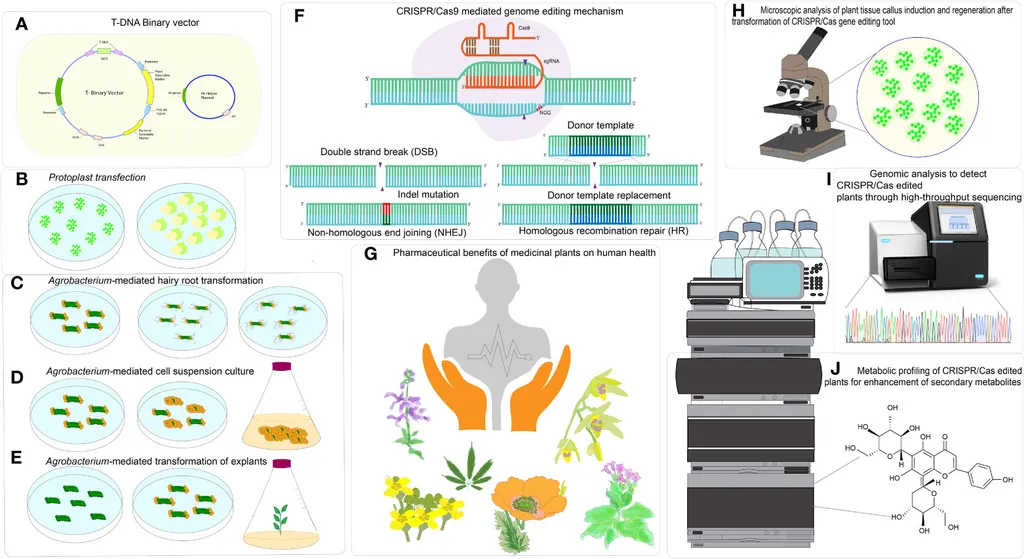In the heart of China, researchers are unlocking the secrets of plants to revolutionize the pharmaceutical industry. Abdul Razzaq, a scientist at the Tropical Crops Genetic Resources Institute of the Chinese Academy of Tropical Agricultural Sciences in Haikou, has been delving into the world of plant metabolites, particularly secondary metabolites, which are known for their therapeutic values. His recent review, published in *Frontiers in Plant Science* (which translates to *Frontiers in Plant Science* in English), sheds light on how elicitors—both biotic and abiotic—can enhance the production of these valuable compounds.
Plants have long been a treasure trove of medicinal compounds, but their low accumulation and complex biosynthetic mechanisms have posed challenges for industrial production. Razzaq’s research highlights how elicitors, such as chemical agents like salicylic acid, methyl jasmonate, and even heavy metals, can trigger plant defense signaling pathways to boost secondary metabolite production. “Elicitors act as a wake-up call for plants, pushing them to produce more of these valuable compounds,” Razzaq explains.
The implications for the pharmaceutical industry are profound. For instance, the plant Cephalotaxus contains alkaloids that are highly valued for their therapeutic properties. By using a combination of sodium fluoride and methyl jasmonate, researchers have seen remarkable increases in alkaloid yields. This could lead to more sustainable and scalable production systems, bridging the gap between traditional medicinal plants and modern pharmaceutical needs.
But the potential doesn’t stop there. Advances in omics, nanotechnology, and CRISPR-based bioprocessing are opening up new avenues for even more efficient and targeted production of these valuable compounds. “The future of pharmaceutical production lies in our ability to harness the natural defenses of plants and enhance them through cutting-edge technologies,” Razzaq says.
As the world continues to seek sustainable and effective medical solutions, this research offers a promising path forward. By understanding and utilizing the power of elicitors, we can unlock the full potential of plant metabolites, paving the way for innovative and impactful pharmaceutical developments. The journey has just begun, and the possibilities are as vast as the plant kingdom itself.

